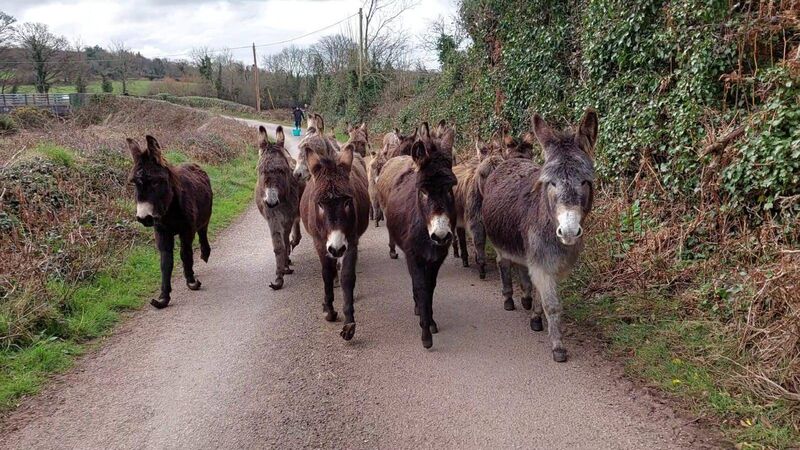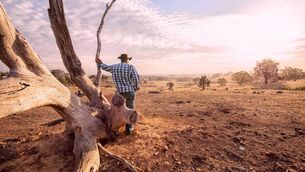Charity discovers 20 donkeys abandoned in field

Twenty donkeys were found abandoned in Co Galway, with one found dead by the charity. Picture: Donkey Sanctuary Ireland
Twenty donkeys were found abandoned in a field in south Galway, including one that was discovered dead.
In a statement, Donkey Sanctuary Ireland described the case as a "watershed moment" due to the scale of neglect of the animals and the limited options that are available to animal welfare organisations seeking to rescue and rehome donkeys in crisis.










